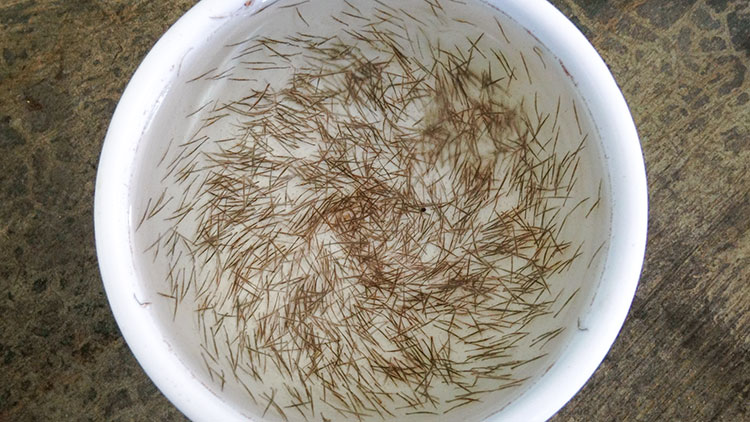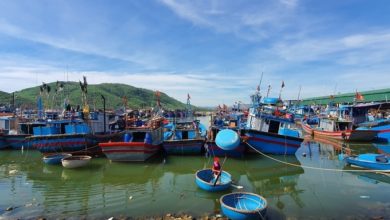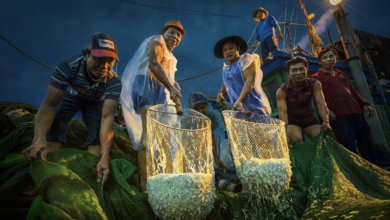Water purification and disease prevention products for farmed shrimp
AHPND poses a significant threat to the shrimp farming industry. Researchers at the University of Natural Resources and Environment in Ho Chi Minh City have sought solutions to combat this threat.
Sustainable solutions
To assist in preventing Acute Hepatopancreatic Necrosis Disease (AHPND), a research team led by MS. Le Thi Phung at the University of Natural Resources and Environment has developed a biological Zeolite product to improve water quality, support healthy shrimp growth, and enhance economic efficiency.
Le Thi Phung highlights that shrimp farming is a high-value sector with considerable consumer demand, both domestically and internationally. In Vietnam, the shrimp industry plays a crucial role in seafood exports. Vietnam has become the world’s third-largest shrimp supplier, accounting for 13-14% of global shrimp export value.
According to Vietnamese Customs data, Vietnam’s shrimp export value for the first three months of 2024 is estimated at over USD 620 million, a 24% increase compared to the same period in 2023. Exports to the U.S. are projected to increase by 26%, while exports to China are expected to rise by over 140%.
Despite favorable natural conditions (climate, water sources, land, etc.), farmers face challenges, particularly with water quality, which directly affects shrimp quality. The research team has developed biological Zeolite products as effective solutions for improving water quality and preventing AHPND. Additionally, new farming models adapting to climate change have shown benefits for farmers.
The research has explored and incorporated new technologies in breeding, commercial farming, feed production, and pharmaceuticals to enhance productivity, product quality, and reduce production risks. Advanced techniques and modern management models are being adopted to increase productivity, product value, and ensure traceability.

The research team has developed biological products to improve water quality and prevent AHPND in shrimp farming in Can Gio, Ho Chi Minh City. The shrimp farming area spans 6,000 hectares, with around 250 hectares affected by diseases such as white spot syndrome (WSSV), yellow head virus (YHV), and AHPND. AHPND affects about 14% of infected ponds and severely impacts shrimp from 20 to 58 days old, causing rapid death within two days.
Effective treatment for shrimp diseases
The research team notes that there is currently no effective treatment for Vibrio parahaemolyticus in shrimp ponds due to the bacterium’s resistance to antibiotics and other treatments. Therefore, developing biological products (CPSH) to improve water quality and manage AHPND is essential.
Zeolite, combined with probiotics, is used to create CPSH that helps absorb toxic gases and heavy metals, clean the water, stabilize pH and water color, and provide dissolved oxygen for shrimp.
The chosen CPSH must be biologically safe, suitable for shrimp farming conditions such as saline or freshwater, and produced using scientific methods. The research team has concluded that Bacillus subtilis is effective in improving water quality and inhibiting AHPND pathogens. They have developed a Bacillus subtilis cultivation process with a 5-10 liter scale, optimizing fermentation conditions with a maximum antibacterial activity of 400 AU/mL.
The product Zeoshrimp, produced with stable Zeolite and Bacillus subtilis, has reduced toxins and pathogens in ponds, maintained stable farming environments, and promoted shrimp growth. The next step for the research team is to improve the recovery process to increase bacterial density, test it in AHPND-infected ponds in Can Gio and the Mekong Delta, and evaluate its effectiveness for future optimization.
Regular use of biological products in shrimp ponds offers substantial benefits to the aquaculture industry. Biological Zeolite products not only reduce toxins but also play a crucial role in breaking down excess organic compounds, maintaining clean and stable water conditions. This stability not only protects shrimp health but also enhances their feed efficiency, promoting growth. By adopting biological Zeolite products, shrimp farmers can optimize production, ensure product quality, and contribute to environmental protection, offering a sustainable and modern solution for the shrimp farming industry with high economic benefits and ecosystem preservation.
VFM






